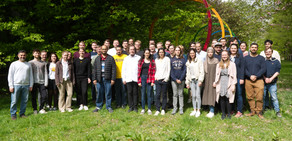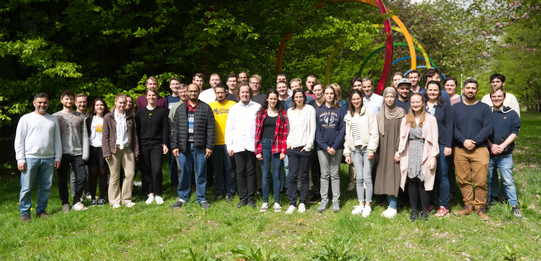Particle and medical physics, technology transfer
Our research group works on topics in experimental particle physics and medical physics, as well as on technology transfer between these research areas.
In the field of particle physics, we primarily work on the analysis of data from the ATLAS experiment, which is installed at the Large Hadron Collider (LHC) of the CERN research center. In particular, we study the properties of the top quark and search for previously unknown processes involving heavy particles. At the same time, we interpret these data in the framework of effective field theories, using advanced statistical methods and tools. In addition, we build semiconductor detectors as part of the extension of the ATLAS experiment and investigate new detector technologies and their applications.
Our work in the field of medical physics includes personal and small-field dosimetry and the development of instruments for proton therapy. Our research is characterized by technology transfer, which includes the application of statistical methods, the development of semiconductor detectors and the simulation of physical processes.
In addition to being a member of the ATLAS collaboration, our group is also part of the former Helmholtz Alliance "Physics at the Terascale", the Ruhr Astroparticle and Plasma Physics Center (RAPP Center), and the PUNCH4NFDI consortium of the National Research Data Infrastructure (NFDI). We also lead a MERCUR-funded graduate school in proton therapy and are part of SFB 1491.



![[Translate to English:] [Translate to English:]](/storages/zentraler_bilderpool/_processed_/a/a/csm_Kopfbild_TU_Dortmund_von_oben_d7307cbbd8.jpg)




